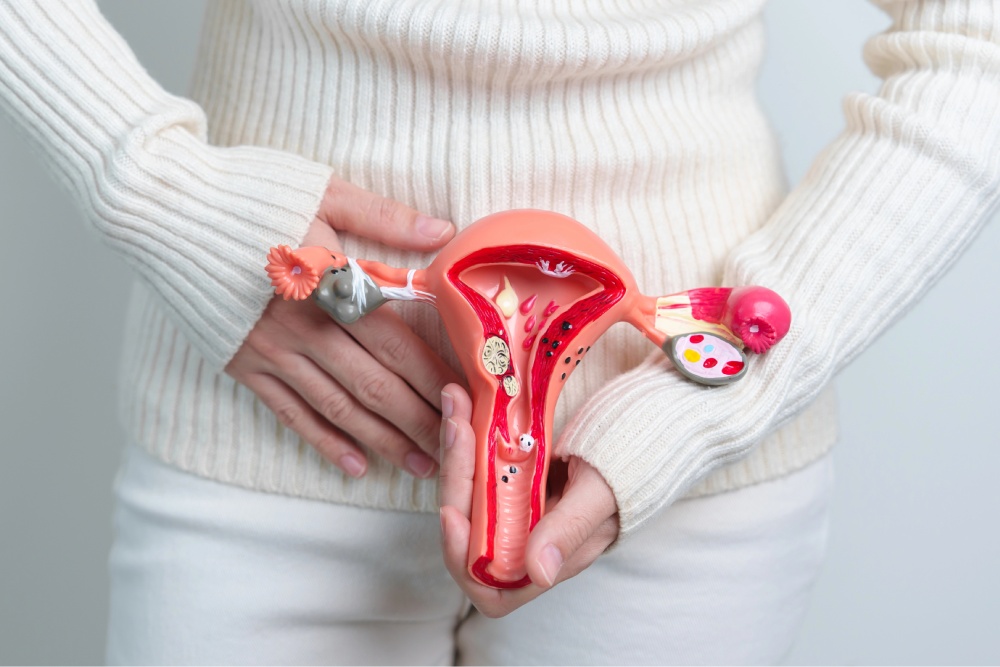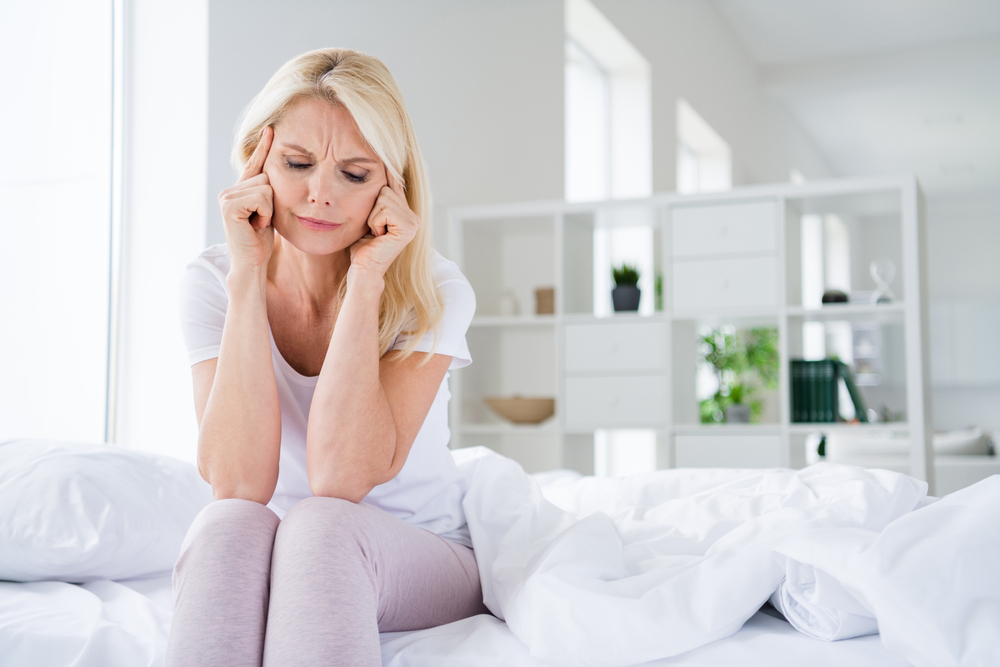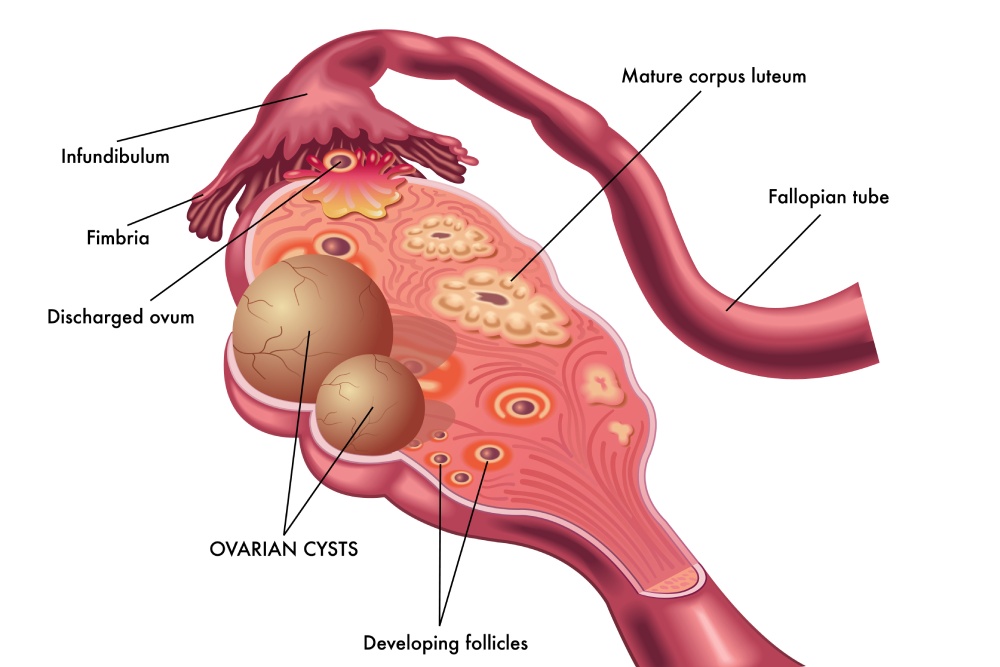
Surgical Solutions: Exploring Hysterectomy As A PCOS Treatment
Polycystic Ovary Syndrome affects millions of women worldwide, often bringing challenges like irregular periods, hormonal...
Read MoreMenopause marks a significant transition in a woman's life, bringing about various changes that can affect physical and emotional well-being. One of the most common and frustrating issues faced during this period is sleep disruption.
The relationship between menopause and sleep is complex, as hormonal fluctuations and other factors lead to sleep problems that can significantly impact quality of life.

Understanding the causes and exploring effective solutions can help women manage these challenges and enjoy restful sleep during menopause.
The hormonal changes that occur during menopause are a primary cause of sleep disturbances. As women approach menopause, the body's production of estrogen and progesterone begins to decline.
Estrogen plays a vital role in regulating the sleep-wake cycle, and its reduction can lead to increased sleep latency and fragmentation.
Progesterone, known for its calming effects, also decreases, potentially causing heightened anxiety and restlessness at night.
These hormonal shifts can make it difficult to fall asleep and stay asleep, leading to a condition commonly known as insomnia. Insomnia can manifest as difficulty initiating sleep, frequent awakenings throughout the night, or waking up too early and being unable to return to sleep.
The lack of restorative sleep can exacerbate other menopausal symptoms, creating a cycle of sleep deprivation and discomfort.
Hot flashes and night sweats are hallmark symptoms of menopause, experienced by nearly 75% of women during this transition. These sudden episodes of intense heat and sweating can occur at any time, but they are particularly disruptive during the night.
The body's sudden temperature fluctuations can wake women from a deep sleep, leaving them drenched in sweat and struggling to return to slumber.
The disruption caused by hot flashes can lead to poor sleep quality and contribute to daytime fatigue and irritability. Managing hot flashes and night sweats is essential for improving sleep quality and overall well-being during menopause.
Simple lifestyle modifications, such as dressing in light, breathable fabrics and maintaining a cool sleeping environment, can make a difference in reducing these occurrences.
Menopause can bring about significant mood changes, including anxiety, depression, and irritability. These emotional fluctuations can be attributed to both hormonal changes and the stress of navigating a life transition.
Such mood disturbances can make it challenging to relax and unwind at the end of the day, further complicating sleep patterns.
A woman's emotional well-being is closely linked to her sleep quality. Anxiety and depression can increase the risk of developing insomnia, while poor sleep can exacerbate mood symptoms, leading to a vicious cycle.
Addressing mood changes through therapy, medication, or stress-reduction techniques is vital for improving sleep and emotional health during menopause.
The risk of developing certain sleep disorders increases during menopause, adding another layer of complexity to sleep problems. Sleep apnea, characterized by pauses in breathing during sleep, is more common in postmenopausal women. Hormonal changes can lead to a relaxation of the airway muscles, increasing the likelihood of airway obstruction during sleep.
Restless legs syndrome (RLS), a condition characterized by an irresistible urge to move the legs, is another disorder that may emerge or worsen during menopause. These conditions can lead to fragmented sleep and increased daytime sleepiness. A thorough evaluation by a gynecologist specialist can help identify and address these sleep disorders, improving sleep quality and overall health.
Addressing menopause-related sleep problems requires a multifaceted approach that combines lifestyle changes, medical interventions, and psychological support. Implementing a regular sleep schedule can help regulate the body's internal clock and improve sleep quality. Going to bed and waking up at the same time every day can establish a consistent routine that promotes restful sleep.
Creating an optimal sleep environment is crucial for minimizing disturbances. Keeping the bedroom cool, dark, and quiet can help facilitate uninterrupted sleep. Investing in comfortable bedding and using blackout curtains or a white noise machine can also enhance the sleep environment, making it more conducive to relaxation.
Incorporating relaxation techniques into the daily routine can reduce stress and anxiety, promoting better sleep. Practices such as mindfulness, yoga, and meditation can calm the mind and prepare the body for rest. Engaging in regular physical activity during the day can also improve sleep quality, as exercise has been shown to reduce symptoms of insomnia and increase overall sleep satisfaction.
For women experiencing severe menopausal symptoms, medical treatments such as hormone replacement therapy (HRT) may be considered. HRT can help alleviate hot flashes, night sweats, and other symptoms, potentially improving sleep quality. However, HRT may not be suitable for everyone, and women should discuss the benefits and risks with their healthcare provider.
Non-hormonal medications and supplements, such as melatonin, may also be helpful in managing sleep problems. Melatonin, a natural hormone that regulates sleep-wake cycles, can be taken as a supplement to improve sleep onset and quality. Cognitive Behavioral Therapy (CBT) for insomnia is another effective treatment option that focuses on changing thoughts and behaviors that contribute to sleep difficulties.
At The Women's Center, we are committed to supporting women through menopause and helping them achieve restful, restorative sleep. Our experienced team is here to provide personalized care and guidance, addressing your unique needs and concerns.
If you're struggling with sleep problems during menopause, contact us today to schedule a consultation and explore your treatment options.




Polycystic Ovary Syndrome affects millions of women worldwide, often bringing challenges like irregular periods, hormonal...
Read More
Ovarian cysts after menopause may seem uncommon, but they can still develop even when the...
Read More
Uterine fibroids are one of the most common benign growths affecting women. By age 50,...
Read More